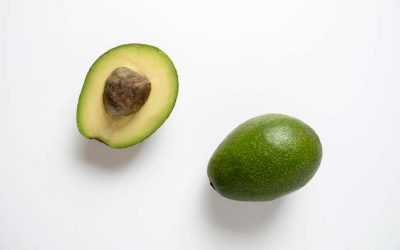
Over the last couple of weeks, you may have seen in the headlines that the amino acid Taurine has been a hot topic linked with healthy ageing and longevity. Well, this is excellent news! We’ve been long-term advocates of taurine for many reasons.
During the animal study, researchers found that having an increased concentration of the amino acid taurine later in life may contribute to a higher life span, life expectancy, and improved health. Taurine supplementation also positively impacted several ageing hallmarks, including decreased DNA damage, reduced inflammation, and reduced cellular deterioration. The study also noted that lower taurine concentration is associated with obesity, high blood pressure, inflammation, and Type 2 diabetes.
Dr Vijay Yadav, who led the research team, said that while it is currently unclear whether humans may benefit in the same way as animals, a large-scale trial should be carried out to learn more about the impact taurine can have on a person’s life span.
For many years Taurine has been a popular addition to energy drinks, and it was interesting to see how the drinks industry jumped on the back of this research with headlines such as “Amino acid in energy drinks makes mice live longer and healthier”. We’re not quite sure that getting taurine from energy drinks is the key to health and longevity, but it is a clever marketing strategy!
Benefits of Taurine
So while new research is emerging all the time and now shows promise for our long-term well-being, we are already aware of the many benefits of taurine for several areas of our health.
Taurine is an organic compound known as an amino acid. Although commonly referred to as an amino acid, it does not participate in protein synthesis like other amino acids do. Taurine plays a crucial role in several physiological processes in the body and has been associated with various health benefits. Here are some of the potential health benefits of taurine:
Heart health: Taurine has been shown to positively impact heart health. It helps regulate blood pressure, improves cardiac function, and supports the proper functioning of the heart muscle.
Antioxidant properties: Taurine exhibits antioxidant activity, which means it helps protect cells from oxidative stress and damage caused by free radicals. This antioxidant effect may contribute to its protective effects on various organs, including the eyes, liver, and brain.
Eye health: Taurine is found in high concentrations in the eye’s retina. It plays a vital role in maintaining retinal health, supporting vision, and protecting against retinal degeneration.
Brain function: Taurine is involved in various aspects of brain function. It acts as a neurotransmitter and has been associated with improved memory, cognition, and learning abilities. Taurine also exhibits neuroprotective effects and may help protect against neurodegenerative diseases.
Exercise performance and muscle function: Taurine has been studied for its potential benefits in improving exercise performance and muscle function. It may help reduce exercise-induced oxidative stress, enhance muscle contractility, and promote muscle recovery after intense physical activity.
Metabolic health: Taurine has been shown to regulate glucose metabolism and insulin sensitivity, which may benefit individuals with diabetes or metabolic syndrome.
Anti-inflammatory effects: Taurine exhibits anti-inflammatory properties, which may help reduce inflammation in the body and alleviate symptoms associated with inflammatory conditions.
Taurine Declines as We Age
As we age, taurine levels in our bodies tend to decline, which can explain the potential for supplementation later in life, as the research shows. This decline can be attributed to various factors, such as decreased production or intake, impaired absorption, and increased taurine excretion.
Taurine is naturally found in various dietary sources, primarily in animal-derived foods such as meat, fish, and dairy products. In a balanced diet, these sources can provide adequate taurine for most individuals. However, as we age,  changes in dietary patterns and nutrient absorption can impact our taurine levels.
changes in dietary patterns and nutrient absorption can impact our taurine levels.
One factor affecting taurine intake is a shift towards a more plant-based diet or dietary restrictions due to health conditions. Plant-based diets tend to be lower in taurine since it is predominantly found in animal sources. As a result, older individuals who follow plant-based diets may have a reduced taurine intake compared to their younger counterparts.
Moreover, age-related changes in the digestive system can affect nutrient absorption, including taurine. The efficiency of absorption and utilisation of taurine may decrease with age, leading to potential inadequacies in taurine intake even with a well-balanced diet. Certain medications or health conditions may also affect nutrient absorption, potentially impacting taurine levels.
As we age, these factors contribute to the decline in taurine availability. Consequently, supplementation or dietary adjustments may be necessary to ensure sufficient taurine intake in older individuals.
But as we have seen from the research, taurine supplementation may be the key to a long and healthy life for all.
Recommended product:
Taurine™ Spray This sublingual spray is an effective way to supplement this essential nutrient with fast and efficient absorption.
200ml (approx. 200 servings)




